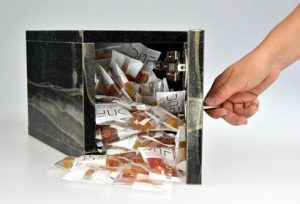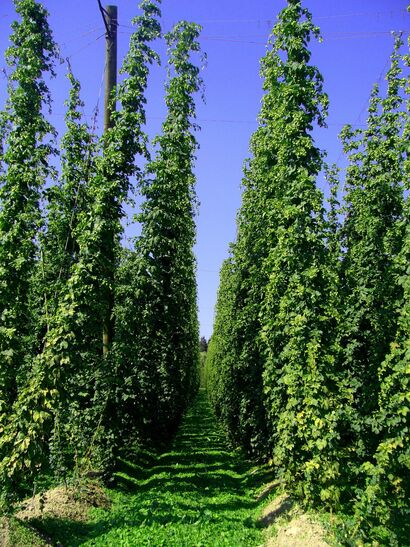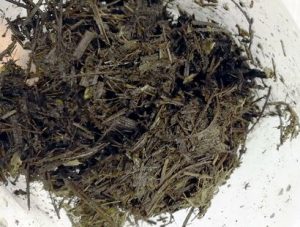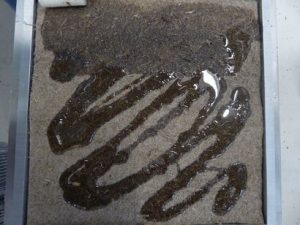The Hallertau is Germany’s largest hop-growing region. During harvesting, hop bine chaff is left over, which is converted into environmentally friendly bio natural gas on site in a biogas plant. But that is not the end of the utilization chain for this fiber plant. Researchers at the German Institutes of Textile and Fiber Research Denkendorf (DITF) have used the plant-containing biogas digestate to produce a composite material that can be used to make furniture.
Laminates are in great demand in the furniture industry because they can be designed very flexibly. The composite material made from biogas digestate developed at the DITF with their project partners is a particularly sustainable variant. To produce it, these plant-based residues are first cleaned in an environmentally-friendly way. From this mass, the DITF and Reutlingen University have developed a wet laid nonwoven that is pressed together with a bio-based resin system to form a composite material. It is load-bearing and can be processed in a variety of ways. The project group has created an initial demonstrator from the material.
The project is an example of successful circular economy and value creation. Using biogas digestate as an industrial raw material is an environmentally-friendly alternative to their previous use as fertilizer, which increases nitrate pollution of the soil and is also significantly restricted by new regulations. Chemical additives are deliberately avoided in the production process, and if offcuts from the textile industry are also used in the design of the furniture, this results not only in unusual designs but also in further added value for the environment.
The research project was funded as part of the Central Innovation Program for SMEs (ZIM). The project partners were Hopfenpower GmbH, Novis GmbH and the joinery Nuding.
Contact
Prof. Dr.-Ing. Markus Milwich
Stv. Leiter Kompetenzzentrum Polymere & Faserverbunde
Leitung Faserverbundtechnologie
T +49 (0)711 93 40-164
E markus.milwich@ditf.de
Source
DITF, press release, 2021-07-27.
Supplier
Bundesministerium für Wirtschaft und Energie (BMWI)
DITF – Deutsche Institute für Textil- und Faserforschung Denkendorf
Hopfenpower GmbH
Novis GmbH
Schreinerei Nuding
ZIM-Kooperationsnetzwerk
Share
Renewable Carbon News – Daily Newsletter
Subscribe to our daily email newsletter – the world's leading newsletter on renewable materials and chemicals














